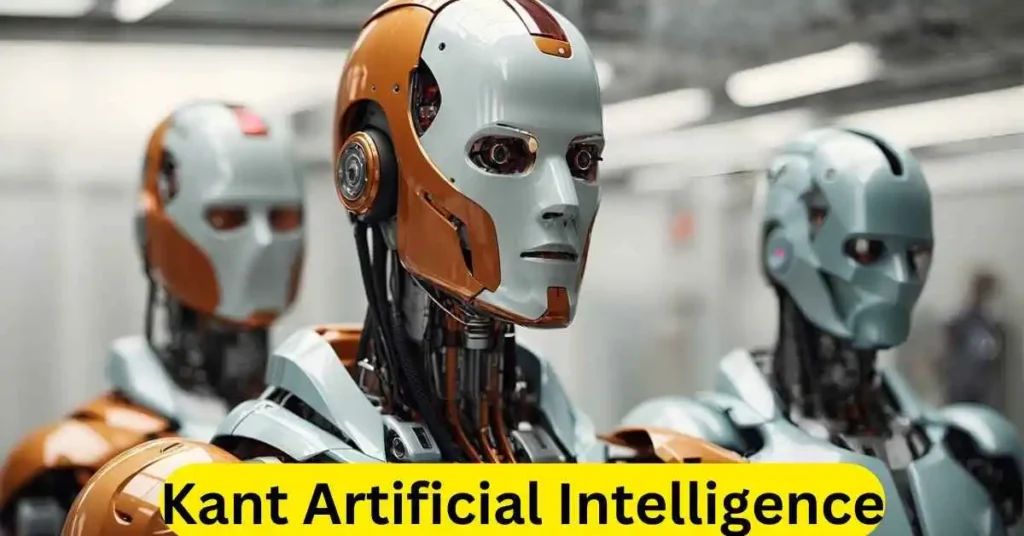Artificial intelligence (AI) has turned out to be one of the maximum sizeable technological improvements of the 21st century. With AI systems advancing unexpectedly, one query that emerges is how those structures intersect with Kant’s synthetic intelligence. Immanuel Kant, a logician who revolutionized the manner we understand human cognition, has had a profound effect on on present-day AI discussions. This article explores the important thing ideas that carry together Kant synthetic intelligence and philosophical ideas, specializing in subjects such as ethics, recognition, and human cognition.
The Foundation of Kant Artificial Intelligence
Kant’s philosophy, especially his Critique of Pure Reason, demanding situations us to think about how expertise is established and understood. Kant synthetic intelligence attracts from his ideas approximately information, belief, and cognition. Kant’s concept of “a priori” understanding, understanding that exists independently of revel in, may be carried out to synthetic intelligence. In this context, AI structures that try to replicate human cognitive procedures may depend on comparable structures of understanding that Kant defined.
How Kant’s “Pure Reason” Relates to AI
Kant added the idea of pure purpose, which refers to a shape of reasoning impartial to sensory enjoyment. In AI, this is similar to the foundational algorithms and structures that allow AI to make decisions and technique records without earlier records. Kant synthetic intelligence may be the idea of an AI device that may be characteristic in addition to human cognition, analyzing facts with reasoning independent of direct experience.
Kantian Ethics and Artificial Intelligence
One of the key concerns in the improvement of AI is the moral implications of independent systems. Kant’s philosophy on ethics, especially the Categorical Imperative, plays a crucial role in discussions about the ethical boundaries of AI. Kant synthetic intelligence cannot exist without thinking about Kant’s moral framework, which specializes in obligation, admiration for individuals, and autonomy.
Applying the Categorical Imperative to AI Systems
The Categorical Imperative states that we should act only according to standards that we might need to be universally relevant. In the world of AI, this could mean developing systems that behave ethically and deal with others as results in themselves, now not merely as a means to quit. Therefore, Kant artificial intelligence structures might must contain moral concepts that ensure ethical choice-making.
Self-Consciousness and AI: A Kantian Perspective
A relevant concept in Kant’s philosophy is the idea of self-awareness—the awareness of oneself as an awesome entity. This is specifically applicable when discussing the potential for AI to reap self-cognizance. Kant artificial intelligence ought to, in theory, progress closer to attaining a type of self-focus, but Kant’s arguments recommend that this would not be an easy assignment.
Kant’s View on Consciousness and Its Relevance to AI
Kant argued that attention is not simply a passive experience but an energetic procedure of synthesizing and organizing perceptions. If AI had been to increase self-focus, it’d want to go beyond mere pattern reputation and acquire a higher stage of cognitive processing. This affords a big assignment for Kant artificial intelligence, as creating genuine self-consciousness in machines won’t align with Kant’s view of ways people enjoy and technique understanding.
The Limits of AI from a Kantian Viewpoint
Kantian philosophy shows that there are limits to human cognition, especially in understanding matters beyond our sensory experience. This belief extends to Kant synthetic intelligence, implying that AI might come across comparable barriers. No count how advanced AI becomes, there can also constantly be aspects of human cognition and understanding that can’t be replicated by using machines.
The Inherent Limits of AI Cognition
Kant proposed that human beings could by no means fully apprehend things as they “are in themselves,” an idea called the noumenon. AI, in addition, might be capable of simulating positive components of human cognition, however, there’ll always be an opening between the gadget’s expertise and human revel. For Kant synthetic intelligence, this gap represents a crucial issue in the quest to create machines that think and purpose exactly as human beings do.
The Future of Kant Artificial Intelligence: Can It Achieve Human-Like Cognition?
As AI keeps adapting, questions arise about its ability to mimic or even surpass human cognition. Kant synthetic intelligence provides each an exciting and tough opportunity for future development. Can AI systems, inspired by Kant’s concepts, attain a stage of cognition comparable to that of people? While improvements are being made, Kant’s philosophy reminds us that AI may additionally never fully replicate the intensity and complexity of human ideas and self-recognition.
Integrating Kantian Philosophy into AI Development
To combine Kant’s artificial intelligence into future AI systems, builders will need to not forget Kant’s thoughts on cognition, ethics, and self-focus. AI can be skilled to comply with moral suggestions based on Kant’s Categorical Imperative, and it can be possible to develop more advanced AI systems that contain components of human cognition. However, as Kant’s philosophy indicates, there’ll likely continually be limitations that prevent AI from absolutely replicating human cognizance.
Conclusion: Embracing Kant’s Philosophy inside the Development of AI
In conclusion, Kant artificial intelligence offers a fascinating framework for expertise in the relationship between philosophy and era. By inspecting Kant’s thoughts on purpose, self-focus, and ethics, we can begin to form AI structures that align more carefully with human values and stories. However, we ought to additionally apprehend the inherent barriers in each human cognition and AI, as Kant’s philosophy teaches us. While Kant artificial intelligence has incredible capability, it’s miles critical to approach its improvement with caution, appreciation for ethical standards, and an understanding of the philosophical limitations that Kant recognized.
“Just like Artificial Intelligence CAD Design helps streamline and improve the design process, Kant Artificial Intelligence aims to bring a deeper understanding of how AI can align with human-like reasoning and consciousness.”


